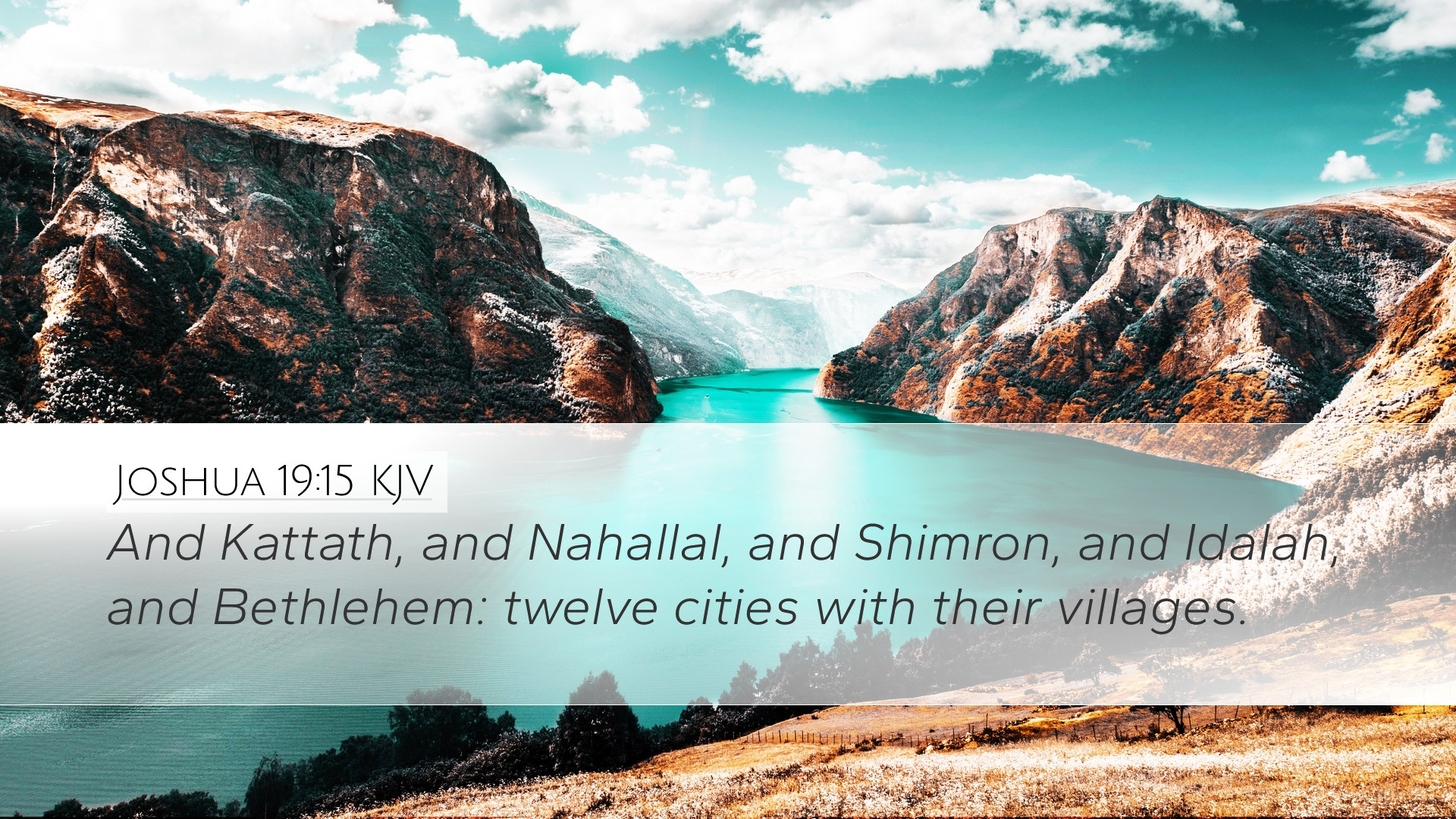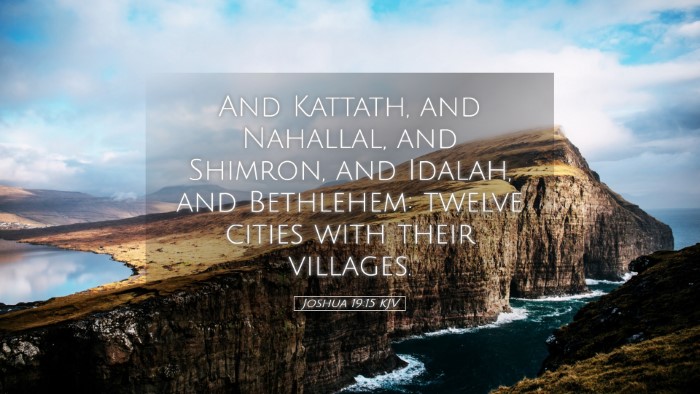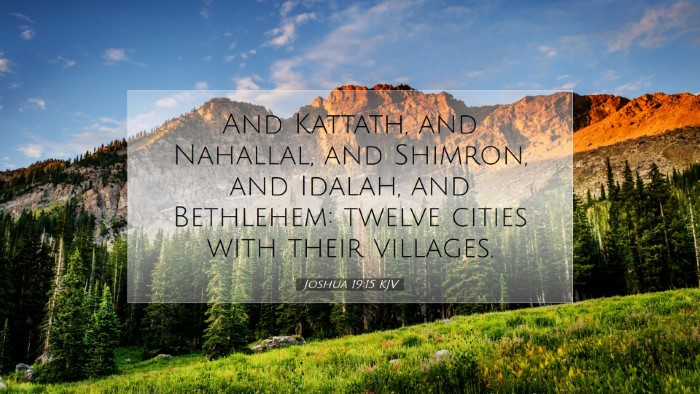Bible Commentary on Joshua 19:15
Joshua 19:15 states: "And Kattah, and Nahallal, and Shimron, and Idalah, and Bethlehem: twelve cities with their villages." This verse falls within the context of the allotment of land to the tribes of Israel after their entry into Canaan. It reflects both the historical significance and the spiritual implications of God's promises to His people.
Contextual Background
The land of Canaan was divided among the twelve tribes of Israel, a pivotal moment in Israel's history. As the people settled into their allocated territories, each town and city established played a vital role in their communal and spiritual life. This particular verse highlights some cities from the inheritance of the tribe of Zebulun.
Insights from Commentaries
Matthew Henry's Commentary
Henry emphasizes the importance of the specific towns mentioned in this verse. He argues that the cities serve as reminders of God's faithfulness. Each location represents a part of the heritage and ancestral inheritance that God promised to Israel. Henry points out that the cities are not just geographical markers but also reflect God’s providence.
He notes that the listing of cities reflects a structured approach to the inheritance, indicating a well-organized system within the Israelite community. This structure is crucial for maintaining order, unity, and identity among the tribes.
Albert Barnes' Notes on the Bible
Barnes highlights the significance of the names of the cities. For instance, Shimron is interpreted as "the place of safety," which denotes hope and protection offered by God to His people. The inclusion of cities like Bethlehem foreshadows its later significance in the biblical narrative as the birthplace of Jesus Christ.
Barnes also emphasizes the theological implications of city names as symbols of God’s guiding presence, illustrating how each location tells a story about God’s intervention in the life of Israel.
Adam Clarke's Commentary
Clarke focuses on the identity of the cities, mentioning that each has relevance for both historical and prophetic contexts. He explains that Kattah and Nahallal may not be as well-known today, but they contributed to the rich tapestry of Israelite identity. Clarke notes that these cities also had implications for the tribe's sustenance and heritage. He further reflects on the significance of the number twelve, symbolizing completeness and God’s order.
Moreover, Clarke proposes that the inclusion of Bethlehem highlights God's plan for bringing the Messiah through humble beginnings, illustrating the theme of God’s choice of the insignificant to accomplish His purposes.
Theological Reflection
The cities listed in Joshua 19:15 serve as focal points in understanding God's covenantal promises. Each city can be seen as representing different aspects of God's character and His dealings with humanity:
- Divine Promises: The cities illustrate the faithfulness of God to fulfill His promises to His people.
- Identity and Heritage: The allotment signifies the establishment of tribal identities, which is crucial for Israel’s societal structure.
- Prophetic Significance: The mention of certain cities, particularly Bethlehem, opens avenues for Messianic prophecies, linking the Old Testament with New Testament revelations.
Practical Application
In modern application, the themes presented in Joshua 19:15 can inspire pastors and theologians to lead their congregations in recognizing God’s faithfulness and provision in their own lives. The towns represented in this verse call believers to reflection on their spiritual lineage and the importance of community and identity in Christ.
Furthermore, understanding the significance of names and places can encourage deeper study within churches, prompting discussions on God’s enduring nature and the significance of heritage in spiritual formation.
Conclusion
Joshua 19:15 serves as a reminder of God's providence and the rich tapestry of His relationship with Israel. By exploring the insights from esteemed biblical commentators like Matthew Henry, Albert Barnes, and Adam Clarke, one is prompted to appreciate not just the historical context but also the spiritual implications of these ancient towns for believers today.


